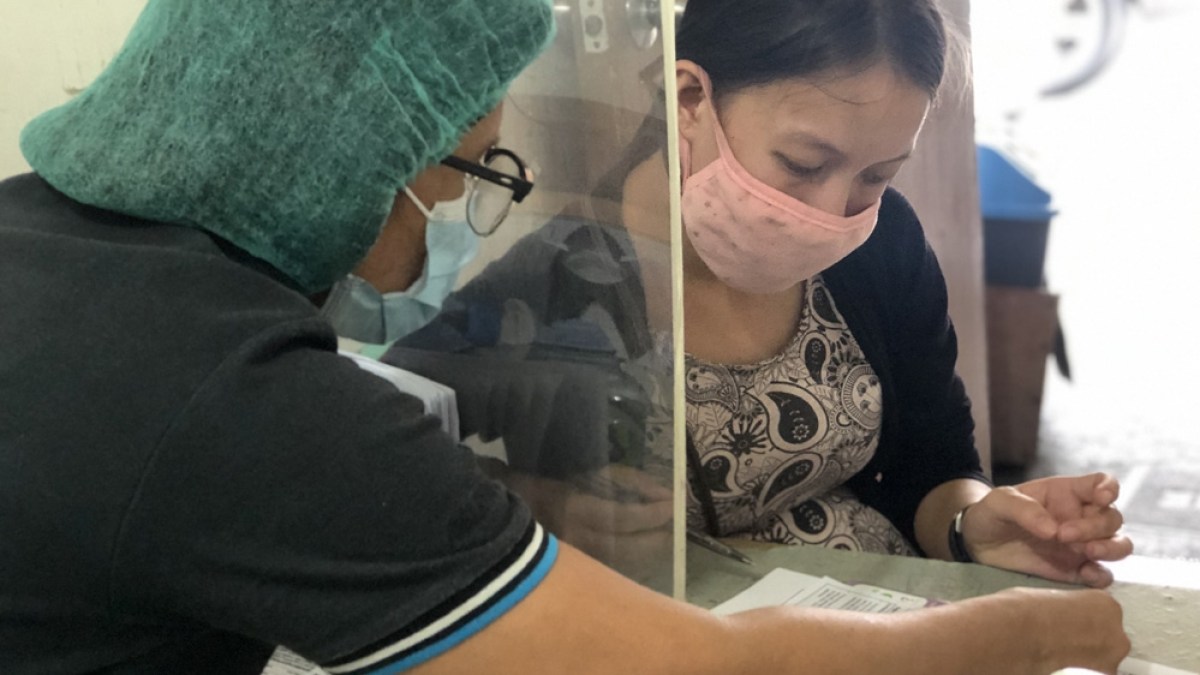Manila, Philippines - Before beginning her daily three-kilometre walk to the government health clinic where she works as a midwife, Stella Marie Alipoon packs a bottle of water for herself and birth control pills, condoms and injectables for the patients she is about to meet.
Alipoon has continued her rounds since mid-March when the Philippines government declared a strict lockdown to curb the spread of the coronavirus. Businesses and commercial establishments ceased operations, all forms of public transportation were suspended, and city borders were barricaded by checkpoints operated by police.
"Patients found me on Facebook and messaged me asking me how they could access birth control," Alipoon said. "Many couldn't go to the clinic because there was no public transport - or they didn't have money for the fare. Some weren't sure if the clinic had closed during the lockdown and didn't want to venture going out and risk getting infected."
Since the women could not go to the clinic, Alipoon brought family planning services to them, meeting them along the highway to give them enough birth control pills and condoms to tide them over for two to three months. In one instance, Alipoon found a discreet spot behind a 7-11 convenience store to administer an injectable contraceptive.
"The women were desperate for birth control. Their partners were home all the time because of the lockdown and well, let's just say they didn't want the increased intimacy to result in an untimed pregnancy," said Alipoon.
Calsona said women are suffering a "double burden" caused by the pandemic.
"On one hand, they are scared to go out to the clinics to get their birth control supplies and check-ups. On the other hand, they are scared to get pregnant during a pandemic that has made health and income security so uncertain," she said.
Jeanger Parane was one of those Calsona brought to the clinic that day.
The 14-year-old is in her seventh month of pregnancy and has not had any kind of prenatal check-up. The joint UPPI-UNFPA study indicates that some 18,000 more teenage girls could fall pregnant by the end of the year because of the COVID-19 measures.
Parane described being "surprised and afraid" of what her family would say when she first found out she was pregnant. Now, she is also confused. She tried to see a doctor twice. Once, the clinic was closed, and the other time, there was no doctor. Later she heard that some clinics were asking for a health check and a negative COVID-19 test before letting patients enter, so she stopped trying.
"I want to give birth in the hospital, but I just might end up giving birth at home. I guess I'll just decide when the baby comes," Parane said, shrugging.

 www.aljazeera.com
www.aljazeera.com
Alipoon has continued her rounds since mid-March when the Philippines government declared a strict lockdown to curb the spread of the coronavirus. Businesses and commercial establishments ceased operations, all forms of public transportation were suspended, and city borders were barricaded by checkpoints operated by police.
"Patients found me on Facebook and messaged me asking me how they could access birth control," Alipoon said. "Many couldn't go to the clinic because there was no public transport - or they didn't have money for the fare. Some weren't sure if the clinic had closed during the lockdown and didn't want to venture going out and risk getting infected."
Since the women could not go to the clinic, Alipoon brought family planning services to them, meeting them along the highway to give them enough birth control pills and condoms to tide them over for two to three months. In one instance, Alipoon found a discreet spot behind a 7-11 convenience store to administer an injectable contraceptive.
"The women were desperate for birth control. Their partners were home all the time because of the lockdown and well, let's just say they didn't want the increased intimacy to result in an untimed pregnancy," said Alipoon.
Calsona said women are suffering a "double burden" caused by the pandemic.
"On one hand, they are scared to go out to the clinics to get their birth control supplies and check-ups. On the other hand, they are scared to get pregnant during a pandemic that has made health and income security so uncertain," she said.
Jeanger Parane was one of those Calsona brought to the clinic that day.
The 14-year-old is in her seventh month of pregnancy and has not had any kind of prenatal check-up. The joint UPPI-UNFPA study indicates that some 18,000 more teenage girls could fall pregnant by the end of the year because of the COVID-19 measures.
Parane described being "surprised and afraid" of what her family would say when she first found out she was pregnant. Now, she is also confused. She tried to see a doctor twice. Once, the clinic was closed, and the other time, there was no doctor. Later she heard that some clinics were asking for a health check and a negative COVID-19 test before letting patients enter, so she stopped trying.
"I want to give birth in the hospital, but I just might end up giving birth at home. I guess I'll just decide when the baby comes," Parane said, shrugging.

Philippines faces baby boom after lockdown hits family planning
Confined to their homes by lockdown, women have also found it difficult to access family planning services.

